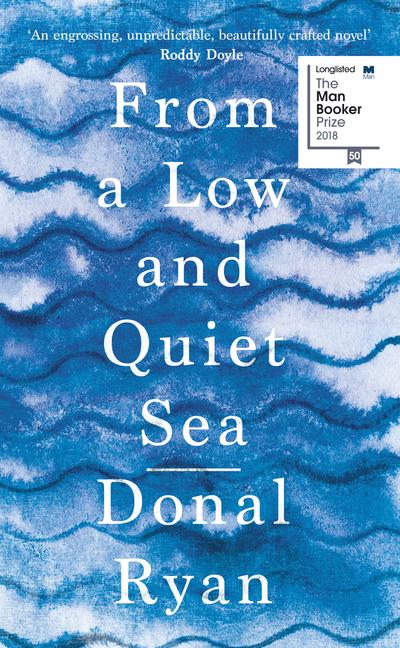Tania Kovats, a visual artist and guest selector at this year’s Edinburgh International Book Festival has taken Rachel Carson’s The Sea Around Us (1950) as her inspiration for a series of discussions. The hour is framed by the idea that the sea, now, is the site for many of the global and environmental crises which afflict our world.
Steve Trent, activist and executive director of the Environmental Justice Foundation, states slavery is alive and well, no more so than at sea. He introduces a short film about the prawn and shrimp industry in Thailand which features interviews with those who have escaped trafficking, forced bonded labour, beatings and witnessed indiscriminate murder. It is apparent that the economics of declining fish stocks and the insatiable search for ever cheaper labour has enabled a climate of extreme human rights abuses.
Journalist Barbie Latza Nadeau introduces her book Roadmap to Hell: Sex, Drugs and Guns on the Mafia Coast which reveals the extent of sex trafficking and corruption within southern Italy. She reports that in 2011 11,000 girls under the age of twenty were trafficked from Nigeria to Italy, 80% of whom went on to be exploited in the sex trade, enduring debt bondage which can take five or six years of relentless prostitution to pay off. She says, ‘the sea is a complicit path’ and even when the debt is repaid they are in a country which never wanted them in the first place. Nadeau uses the phrase ‘indifferent Europe’ more than once.
Donal Ryan, author of five novels, most recently From a Low and Quiet Sea (2018) which was long listed for the Man Booker Prize, worked for a decade as a labour inspector meeting many who had fled their lives in North Africa to eventually reach Ireland. From a Low and Quiet Sea depicts the void between the lies spun by traffickers to those so desperate for a new start and the ‘deficit in promises and the truth of the voyage’.
The panel are unpicking the profound disparity between the idea of the sea as a symbol of hope, a route to prosperity and a better future and a place which can dash those dreams and instead become a prison, a place of extreme violence and a lawless space rife for criminal exploitation. The audience are perhaps feeling the sea is like concrete, a place where people are broken and destroyed but Steve Trent speaks about hope and optimism and encourages everyone to write actual, physical letters to both their supermarkets of choice and their MPs to ask for accountability and the bringing in of rigorous legislation. As citizens of an interconnected world we have both the choice and ability to affect change. Paraphrasing Trent, ‘better to help light the candle than rage into the darkness.’ Sessions like this are the very best of what the Book Festival has to offer.
